 |
Mention the word "negotiation" and a number of metaphors come to mind — arms-length, check your emotions at the door, win the competition. A new book by U-M Ross Professor Shirli Kopelman, Negotiating Genuinely: Being Yourself in Business, shows why that's the wrong approach, and outlines an innovative, positive way to be a better negotiator. Read to find out how to be your best self and be strategic during business negotiations. |
 |
The explosion of technology and connectivity among consumers has rendered old business models obsolete. Ross Professor Venkat Ramaswamy has shown that companies need to co-create with stakeholders — customers, suppliers, and employees. His latest book on the subject, The Co-Creation Paradigm, provides a blueprint on how to shift your mindset and business practices. Read more to find out what he and co-author Kerimcan Ozcan, PhD '04, discovered about how to succeed with this shift. |
 |
Are we living in a divided country? U-M Ross Professor Wayne Baker's new book, United America, tackles that question — and the conclusion might surprise you. Baker takes a look at what Americans truly value and the areas of common ground. Read more to find out what his surveys and research uncovered and why it matters. |
 |
How many times have you heard an executive say, "People are our most important asset?" Despite the lip service, few companies really know how to tap the knowledge and abilities of their employees. So who's doing it and how can your company get better at it? U-M Ross Professor Noel Tichy and co-author Chris DeRose, MBA '96, lay out the how and why in their new book, Judgment on the Front Line: How Smart Companies Win by Trusting Their People. They show why front-line employees are vital to a company's success and how managers can tap their knowledge and give them the tools they need to be good decision-makers. Tichy and DeRose lay out successes at places like Google and Zappos and describe a five-step process companies can use to foster innovation and good decision making at all levels of the organization. |
 |
Protecting intellectual property and fostering innovation is more critical than ever in today's complex business world. A new book edited by U-M Ross Professor Lynda J. Oswald and Daniel R. Cahoy of Penn State's Smeal College of Business gives a detailed look at the U.S. patent system and how it impacts business strategy. Oswald, chair of Business Law at Ross, and her co-editor compiled the latest research and articles on U.S. patent law, including recent changes, court decisions, and the outlook for future strategy. The book serves as a tool for anyone involved in innovation, intellectual property, and patent law. |
 |
Sustainability has fully permeated mainstream business strategy, but Professor Andrew Hoffman isn't pleased at how it's being translated. He and his mentor, retired MIT Professor John R. Ehrenfeld, have observed more mitigation, more "doing less bad," than transformation. Their new book, Flourishing: A Frank Conversation About Sustainability (Stanford University Press), deals with what sustainability should be, compared with what it's become. |
 |
How did a scent become important for an airline? Why is eating a Hershey's Kiss so much different than eating a bar of the same chocolate? In her new book, Customer Sense: How the 5 Senses Influence Buying Behavior (Palgrave Macmillan, 2013), Professor Aradhna Krishna explains how these companies tap into sensory marketing — using visual, audio, tactile, olfactory, and taste cues not only to sell a product, but to engage customers. Krishna brings together the fields of neuroscience, psychology, and consumer behavior to show how our senses work, and how successful companies master this art to build powerful bands. |
 |
Professor Marina Whitman's life has been full of firsts. First woman on the president's Council of Economic Advisers. First woman to be chief economist and a group vice president at General Motors Co. As a pioneer for women in business and academia, Whitman also carried a family legacy that both opened doors and cast a shadow over her own career. She writes about living with this legacy — and provides an insider's view on some of the biggest moments in 20th century history — in her book, The Martian's Daughter: A Memoir. |
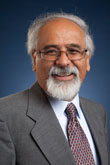 |
Emerging nations, long seen as a source of low-cost services such as manufacturing and IT support, now are home to a new breed of multinational company. These new players, stepping from the background and building global brands, pose a new and serious threat to established multi-national companies in North America, Europe, and Japan. "It's not about selling stuff at lower prices or being the supplier of private-label or original-equipment companies in the West anymore. These companies are learning to master design, R&D, and focused innovation. They are getting better at building brands and marketing overseas," says marketing professor Rajeev Batra. |
 |
Professor Jeff DeGraff has spent his career initiating innovation inside such global organizations as General Electric Co., the Coca-Cola Co., Pfizer Inc., and Telemundo. Now he's taking that knowledge and applying it to personal improvement. DeGraff's first foray into self-help publishing, Innovation You, presents proven business strategies people can use to reinvent their own lives. He challenges some well-worn tenets of pop psychology and pushes readers to see beyond the blind spots. DeGraff takes his message to the airwaves this August in a televised special slated for national distribution on public broadcasting stations. |
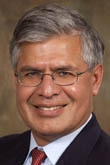 |
Despite the tremendous economic growth around the world in the past 30 years, the number of people living in poverty has gone up. And while economic growth is necessary for poverty reduction, it is not enough, says strategy expert Aneel Karnani. He proposes an approach that focuses on creating employment opportunities for the poor and increasing the population's productive capacities by ensuring basic public services. Business should provide truly beneficial, affordable products, and governments should regulate markets to protect vulnerable consumers, he says. |
 |
By the year 2020, one out of every six Americans will be 65 or older. As the population ages, its preferences and habits continue to evolve. Yet how and why preferences change is a poorly understood phenomenon. Ross professors Norbert Schwarz (left) and Carolyn Yoon, along with UCLA Anderson School of Management's Aimee Drolet, compile the latest research in the field and delve into the practical and theoretical findings that lie at the fascinating intersection of psychology and economics. |
 |
During the last decade, first-generation base of the pyramid ventures focused primarily on "finding a fortune" by selling goods to and sourcing familiar products from the world's four billion poorest people. Many of these initiatives did not scale, and some failed outright. But through that experience, crucial lessons have been learned. In this book, co-editors Ted London (left) and Stuart L. Hart deliver next-generation techniques to build successful business ventures, create sustainable business ecosystems, design new technologies with the BoP in mind, and even transform entire sectors through collaborative entrepreneurship. |
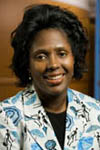 |
If recent history is any guide, managing under pressure appears to be the new normal. There’s always a crisis somewhere, and thanks to 24-hour news and instant communication, stakeholders inside and outside an organization are able to apply collective (and often relentless) pressure on management. Here, leadership expert Lynn Perry Wooten and co-author Erika Hayes James provide methods to identify and mitigate a crisis before one erupts — and then synthesize lessons culled from the experience. |
 |
Savvy managers no longer look at contracts and the law reactively but use them proactively to reduce costs, minimize risks, protect intellectual property, and create value. In this book, Siedel and co-author Helena Haapio address ways to design contracts and contracting processes to promote business success and prevent problems. Learn how to secure talent while avoiding employment pitfalls, deal with government regulations, and use intellectual property to seize sustainable strategic advantage. |
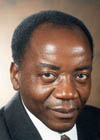 |
Why is Africa so poor? Author Afuah argues that it’s not because of corruption, colonialism, slavery, tribalism, war, and disease. Rather, it’s because Africa has not learned how to create value – it has failed to learn how to make the products or offer the services that people need. Why has it failed to learn how to create value? This book offers five reasons. It also offers five things Africa must do to start eradicating poverty. |
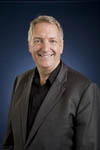 |
According to studies, we all work for the same thing — and it's not just money. It's meaning. Through our work, we seek a sense of purpose, contribution, connection, value, and hope. That's the simple but profound premise behind The Why of Work. Dave and Wendy Ulrich talked to thousands of people — from rank-and-file workers to clients and customers to top-level executives — and synthesized major disciplines to identify the "why" behind our most successful experiences. |
 |
In this pathbreaking book, Venkat Ramaswamy and co-author Francis Gouillart illuminate ways that every organization can achieve "win more-win more" results by practicing co-creation with customers, suppliers, and other stakeholders. The Power of Co-Creation delivers detailed examples culled from the authors’ own experience and research with such leading firms as Cisco, GlaxoSmithKline, Amazon, Jabil, Predica, Wacoal, Caja Navarra, and more. |
 |
Appealing to the consumer's multiple senses, including touch, taste, smell, sight, and sound, can help establish a deep sense of brand loyalty that resonates long after the marketing message has been sent. In the new book Sensory Marketing: Research on the Sensuality of Products, Krishna has compiled the first volume of cutting-edge research that brings together sensory marketing's core pioneers. |
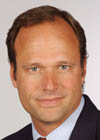 |
In 1986, Hoffman quit an engineering job, declined acceptances for graduate school at Harvard and Berkeley, and accepted a carpenter's job in Nantucket. Unbeknownst to him, he had entered the world of high-end custom building. Builder's Apprentice is a book about his personal and professional growth along that journey, from apprentice to builder through the tutelage of a seasoned and hard-nosed builder. At its core, it's a coming-of-age story, a celebration of the pursuit of creative impulses, and a story about defying the rules and finding a personal calling in life.
|
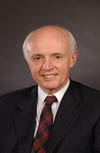 |
HR Transformation starts with the premise that HR’s value is defined by meeting the needs of multiple stakeholders. The book synthesizes a clear four-step process that HR leaders and line managers can use to position their organizations within their market context. By accomplishing both an internally and externally focused transformation, HR can play a central role in helping companies face competitive challenges and drive business performance and growth. |
 |
We all want to have a positive impact, but often, despite our best intentions, we're tripped up by subtle psychological states we're not even aware of. It doesn't have to be that way. Lift combines cutting-edge social science and real-world examples to describe four mindsets that will help shed light on unconscious ways people hold themselves and others back. The book offers tested, practical guidelines and practices for exerting positive influence in any situation. |
 |
As developing and transition economies enter the next phase of reforms, labor market issues increasingly come to the fore. With the increased competition from globalization, the discussion is shifting to the need for greater labor market flexibility and the creation of "good" jobs. Moreover, the greater actual and perceived insecurity in labor markets has generated a new agenda on how to structure safety nets and labor market regulation. It is clear that an accurate understanding of how labor market structures function is essential to analyze alternative policy proposals in the wake of these concerns. Labor Markets and Economic Development compiles new work by leading labor economists to address these timely issues. |
 |
|
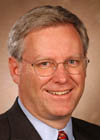 |
|




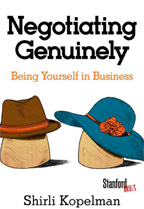 Negotiating Genuinely: Being Yourself in Business
Negotiating Genuinely: Being Yourself in Business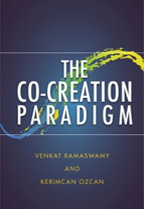 The Co-Creation Paradigm
The Co-Creation Paradigm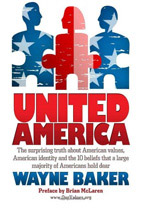 United America
United America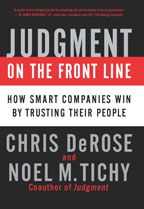 Judgment on the Front Line: How Smart Companies Win by Trusting Their People
Judgment on the Front Line: How Smart Companies Win by Trusting Their People The Changing Face of U.S. Patent Law and its Impact on Business Strategy
The Changing Face of U.S. Patent Law and its Impact on Business Strategy Flourishing: A Frank Conversation About Sustainability
Flourishing: A Frank Conversation About Sustainability 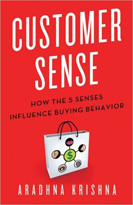 Customer Sense: How the 5 Senses Influence Buying Behavior
Customer Sense: How the 5 Senses Influence Buying Behavior Martian's Daughter: A Memoir
Martian's Daughter: A Memoir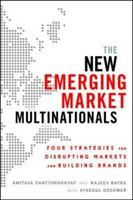 The New Emerging Market Multinationals
The New Emerging Market Multinationals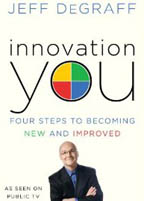 Innovation You: Four Steps to Becoming New and Improved
Innovation You: Four Steps to Becoming New and Improved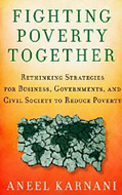 Fighting Poverty Together: Rethinking Strategies for Business, Governments, and Civil Society to Reduce Poverty
Fighting Poverty Together: Rethinking Strategies for Business, Governments, and Civil Society to Reduce Poverty The Aging Consumer: Perspectives from Psychology and Economics
The Aging Consumer: Perspectives from Psychology and Economics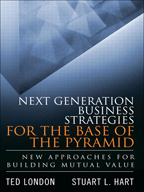 Next Generation Business Strategies for the Base of the Pyramid: New Approaches for Building Mutual Value
Next Generation Business Strategies for the Base of the Pyramid: New Approaches for Building Mutual Value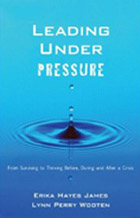 Leading Under Pressure
Leading Under Pressure Proactive Law for Managers: A Hidden Source of Competitive Advantage
Proactive Law for Managers: A Hidden Source of Competitive Advantage The African Paradox: Is China the Solution?
The African Paradox: Is China the Solution?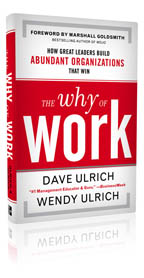 The Why of Work
The Why of Work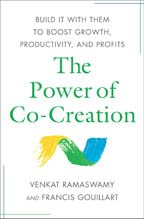 The Power of Co-Creation
The Power of Co-Creation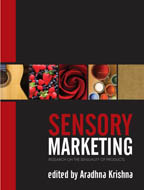 Sensory Marketing: Research on the Sensuality of Products
Sensory Marketing: Research on the Sensuality of Products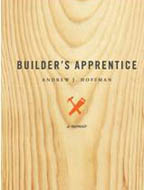 Builder's Apprentice
Builder's Apprentice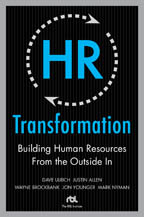 HR Transformation: Building Human Resources From the Outside In
HR Transformation: Building Human Resources From the Outside In Lift: Becoming a Positive Force in Any Situation
Lift: Becoming a Positive Force in Any Situation 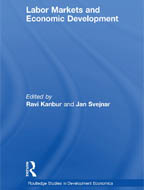 Labor Markets and Economic Development
Labor Markets and Economic Development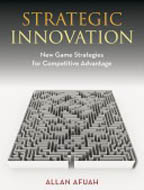 Strategic Innovation: New Game Strategies for Competitive Advantage
Strategic Innovation: New Game Strategies for Competitive Advantage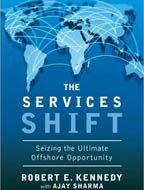 The Services Shift: Seizing the Ultimate Offshore Opportunity
The Services Shift: Seizing the Ultimate Offshore Opportunity